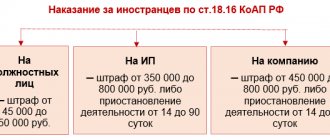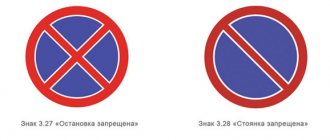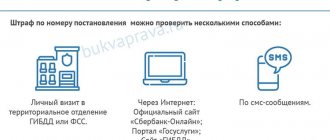When deciding to use public transport services, you must take into account the payment of the fare, the amount of which is set at the state level. Below you will find information regarding the size of the fine itself, as well as methods of subsequent payment of the imposed penalty for the offense. It is necessary to be guided by the rules for collecting fines for ticketless travel in the capital, the relevant Law No. 45, adopted as amended on June 18, 2014 . In particular, Article 10.1 indicates that it is established:
- The fine for traveling without a ticket is 1000 rubles for a citizen.
- If there has been an unlawful use by users of urban transport of a preferential card (establishing direct personification), then a decision is made to collect 2,500 rubles as penalties.
There are also two points worth noting.
- The first is a uniform fine, regardless of the category of citizens or their level of social security.
- The second one sets specific terms of payment for this administrative offense. In particular, the State Public Institution “Transportation Organizer” indicates that payment under the fine must be made within 60 days from the date of the immediate issuance of the Resolution on the administrative offense. Repeated failure to pay threatens the offender with the possibility of arrest for a period of fifteen days and restrictions on the ability to travel abroad.
Bankiros recommends!
Tinkoff Bank, Lit. No. 2673
Credit card "Tinkoff Platinum (with secure card delivery)" 55 days without interest, up to 700,000
Apply for a card
In the event that there is a failure to pay penalties, additional sanctions are envisaged, namely a doubling of the amount of the administrative fine provided for by current legislation. True, the minimum threshold for the amount of an additional sanction is limited, namely, it is at least one thousand Russian rubles.
Who can fine and in what case, collection procedure
The carrier itself does not have the right to issue a fine. Either a police officer or local authorities can draw up papers for collection. If the resolution was not issued, there was no administrative offense and you do not have to pay anything.
All fines go to the budget. There is no need to pay the conductor or other unknown person on the spot without filling out documents about the violation.
Starting from 2021, children under 16 years of age are prohibited from being removed from transport, even if they do not intend to pay the fare.
For other passengers, a simple rule applies: the person pays the fare or gets off at the next stop.
Bankiros recommends!
Otkritie Bank, Lit. No. 2209
Credit card “120 days - online” 120 days without interest, up to 500,000
Apply for a card
The conductor has the right:
- demand payment for travel;
- call the police or ambulance in some cases;
- check availability of travel tickets;
- seize fake documents - student cards, travel cards, certificates and others.
In addition, if a passenger is heavily intoxicated, wearing heavily soiled clothing, and disturbing the peace of other passengers, he may be removed from the cabin.
Most conductors can only demand payment of the fare or leave the transport. As a last resort, an administrative violation report is drawn up, which the offender must sign. The fine receipt will be sent to his home.
A local authority or police officer can also issue a fine. The conductor does not have the right to confiscate a passport, driver’s license, or other real and important documents for the passenger. But he can pick up fake or suspicious ones:
- certificates;
- student;
- certificates.
Any document that should confirm preferential or free travel, but looks unreliable, he can confiscate. For example, if it is clear that a photograph has been replaced or a seal has been tampered with.
Bankiros recommends!
Alfa-Bank, Lit. No. 1326
Credit card “100 days without interest online” 100 days without interest, up to 500,000
Apply for a card
How is the fine imposed? An administrative violation report is drawn up, which is signed by the offender and the conductor. He is then given a receipt by the conductor or government official.
Not every controller can fine
There are two categories of controllers in Moscow public transport: controllers of the State Unitary Enterprise "Mosgortrans" and controllers of the State Public Institution "Organizer of Transportation". They differ from each other not only in their uniforms, but also in their set of powers.
Even if you don’t know their dress code, you can tell them apart by looking closely at the logo patch on the sleeve. Ideally, inspectors should introduce themselves and show their identification. But this is ideal, and in real life this rarely happens. Although the passenger himself has the right to demand that the controller present his identification.
Employees of the “Transportation Organizer” are also distinguished by a badge with an individual number. In addition, to resolve conflict situations, these inspectors were recently given video recorders, which must be turned on every time tickets are checked.
The fine for traveling without a ticket on public transport
The amount of the fine may vary in different regions. For example, this is what a fine on Moscow buses will look like
| Cause | Sum |
| Ticket-free travel in ground transport and metro | 1 000 |
| Trying to use someone else's social card | 2 500 |
| Refusal to pay for luggage | 1 000 |
On electric trains, the fine for traveling without a ticket is 50 times the cost of travel over a distance of 10 km (usually 1 “zone”).
The cost of the fine depends on the region
| Region | Price |
| Moscow | 1 000 |
| Tula | 1 000 |
| Volgograd | 500 |
| Vladimir | 300 |
| Yakutia | 200 |
| Altai region | up to 5,000 |
Travel is considered ticketless if the passenger:
- did not debit payment from a bank card when passing through the turnstile;
- refused to pay the fare to the controller;
- uses a card that has expired and no funds are debited from it;
- provides counterfeit or damaged means of payment.
Bankiros recommends!
VTB Bank, Lit. No. 1000
Opportunity card 110 days without interest, up to 1,000,000
Apply for a card
Useful tips
The person brought to administrative responsibility does not always agree with the offense charged, and in this case it is advisable to immediately begin the procedure of appealing the issued document.
The law gives 10 days to prepare and file an administrative complaint against the illegal actions of the authorized person who issued the decision.
The document is drawn up in any form, but some elements must be present in it, namely:
- full name of the court to which the complaint is filed;
- information about the applicant;
- information about the official who made the decision;
- a descriptive part in which the applicant sets out the current situation as a result of which he was held accountable;
- the motivational part, which displays the legal basis for one’s innocence in an administrative offense;
- final part. The applicant asks the court to declare the official’s actions illegal and also to cancel the decision;
- list of applications.
READ Ordering a ticket on the Yandex.Bus service: passenger procedure
Often the court takes the side of the controller, and in order to prove your innocence, you will need to collect convincing evidence.
Where and how to pay the fine?
In order to pay a fine for traveling without a ticket on public transport, you must follow the following procedure:
- Enter the established accrual identifier indicated on the form of the issued resolution (marked in the UIN column). It can also be indicated on the corresponding payment receipt.
- Any payment method must provide for entering a single unique accrual identifier. You can easily clarify the methods and capabilities of certain payment instruments on the Moscow city service resource. After the series and number of the issued Order are entered into the appropriate columns, the “Details” section will open for the offender, indicating the “Identifier” details.
- It is important to note that entering both the series and the Resolution number is carried out without additional spaces in the form. Entering the series is provided exclusively in Cyrillic.
- Among the many ways to pay for fines, it is worth noting the use of the Moscow public services portal service. To do this, you just need to follow the instructions indicated on the website.
- The standard option is to pay the fine through the use of banking services, which is profitable and convenient primarily for residents of various other regions who have direct access to the Internet and have a bank account. It is important to note that payment of the imposed fine for ticketless travel is provided for by a certain bank, depending on the regulations of the services provided. It is worth first clarifying the possibility of making such a payment by contacting a bank employee for help.
Bankiros recommends!
MTS Bank, Lic. No. 2268
Credit card “MTS Cashback (with secure card delivery)” 111 days without interest, up to 1,000,000
Apply for a card
Payment order
After the fine is issued, the citizen is given a resolution on an administrative violation. It describes all the information about the act committed by the citizen:
- Full name of the offender;
- circumstances of the incident (travel on public transport without a ticket);
- reference to the legal norm that became the basis for issuing the fine;
- the amount of the fine;
- deadlines for appeal and fine payment details;
- position and full name of the person who issued the resolution;
- date of issue.
You can contact your bank to pay the fine. To do this, you need to have an identification document, payment details and the amount of the fine.
A bank employee will generate and print a receipt and hand it over to the payer. The data on the receipt must be carefully verified and signed. Based on the payment results, the citizen will receive a payment document confirming payment. It must be kept in case of disputes.
Why can't I pay in cash on the spot? The fine must go to the budget, and the controller does not have the authority to transfer funds to the budget.
Regions may have their own methods for paying fines . For example, in Moscow there is:
- Online service from mos.ru “One-click payments” and a service for payment in the “Services” section. If the resolution contained passport data, the invoice for payment will appear automatically in the “One-Click Payments” service. If the invoice does not appear automatically, you can find it in the UIN from the decree or receipt for payment. After requesting the amount of the fine in the “Services” section, you can also pay it using a bank card online.
- ATMs and terminals of Sberbank. In the “Payments” section, you must select the “Taxes, fines and duties” option, then the “Transportation Organizer” organization, enter the UIN and the amount of the fine.
How to appeal?
If the ticketless travel was recorded with witnesses and the police, then appealing the fine is almost pointless. But in some cases it makes sense to challenge the imposed fine. For example, if you have witnesses confirming payment for travel.
An appeal against a fine is possible in the magistrate or district court at your place of residence.
What do we have to do:
- submit a statement of claim to the court, describe all the nuances in the text, indicate specific articles and facts confirming the rightness of the plaintiff;
- attach a receipt for payment of the state fee.
Even before filing a complaint, you need to go through a pre-trial settlement procedure. Therefore, before making a complaint, it is worth writing a complaint to the head of the transport company. They are required to respond within 1-2 days.
In accordance with the Civil Code of the Russian Federation, the debtor has 10 days to file a complaint.
Liability for failure to pay a fine
If you do not pay the issued fine within the period established by law, the violator may face the following consequences:
- administrative arrest for up to 15 days;
- seizure of existing assets or property;
- increase in the amount of the fine by 2 times.
The legislation provides for the possibility of appealing an administrative decision within 10 days from the date of prosecution and delivery of the relevant document.
Features of paying fines for ticketless travel in transport
It is noted that in the receipt or resolution regarding the offense committed, three main points are indicated.
Bankiros recommends!
Gazprombank, Lit. No. 354
Convenient card 180 days without interest, up to 600,000
Apply for a card
- The first is the actual date when the incident took place.
- The second provides for an indication of the amount of the imposed penalty.
- The third is the number of the resolution according to which payment will be made.
In the event that the receipt form has been lost, you can easily go to the website of the carrier whose services the citizen used and download the form, filling it out yourself. Employees of all banking structures must accept the completed violation form. The relevant controlling person who has provided identification before the start of the inspection has the right to issue these receipts.
What to do if your receipt is lost
It happens that a fined person may lose the receipt. If this happens, then there is no need to worry, since there is a way out of this situation. In the case where a person cites the reason for non-payment as the loss of a payment order, please note that such an argument is not taken into account.
Payment of the fine if you have lost your receipt is carried out as follows:
- go to the official website of the State Public Institution “Transportation Organizer”;
- look for the form of payment document for the violation committed;
- print it out;
- fill out the document;
- pay in any way convenient for you.
In order to find out the details of the decision made regarding the violation, you can find out by calling the specified organization.
Payment without receipt
The receipt contains key data for the correct transfer of money - protocol number, UIN (universal payment identification number), amount, details. Therefore it is necessary. The only exception is that if the case is transferred to the bailiffs, then you can find the payment data through the official website of the FSSP or State Services and through them you can transfer money from any Russian bank card or virtual wallet.
However, if the 60-day period has not yet expired, the data has not yet been transferred to the FSSP. In this case, the procedure is as follows:
- Contact the metro employee where the fine was issued, or call the hotline of this particular company. As a rule, a special department deals with violators; it is necessary to obtain their contact information. There are no difficulties at this stage; specialists are obliged to provide the necessary information.
- Find out the number of enforcement proceedings, UIN, and other details. The amount is known, since the fine is fixed - 1,000 and/or 2,500 rubles.
The data obtained is enough to find a virtual receipt in Sberbank Online, VTB Online, Yandex.Money and payment terminals. Also, an individual can enter this data into a paper receipt from any bank and transfer funds through a cash desk.
On the websites of some metro systems there is a section “Payment of fines”, where you can fill out a receipt online and print it yourself. But the user will still need a UIN and enforcement proceedings number.
Discounts on public transport
Some categories of people may not pay for travel on public transport in accordance with federal or regional benefits
| Category of people | Benefit |
| Hero of Socialist Labor and full Knights of the Order of Labor Glory | Free pass |
| Heroes of the Soviet Union, Russian Federation, holders of the Order of Glory | Free pass |
| Labor veterans, home front workers | Free pass |
| Rehabilitated persons | Travel card |
| Disabled people | Travel card |
| Orphans, children without parental care | Travel card |
Bankiros recommends!
Raiffeisenbank, Lit. No. 3292
Credit card “110 days without interest” 110 days without interest, up to 600,000
Apply for a card
At the moment, not all regions of Russia have to pay fines. In 22 regions there are no fines (Lipetsk, Magadan, Novgorod, Penza, Tomsk, Khabarovsk Territory, Voronezh, Sakhalin).
Free riders in the regions
As strange as it may sound, in some areas there is no fine at all for not having a ticket on public transport. Conductors identify violators and simply drop them off at the nearest stop, and if the conflict goes “out of bounds,” then the police are called. For example, such a practice has been formed in the Penza, Tomsk, Lipetsk, and Novgorod regions (22 subjects in total).
In some regions, liability was previously provided for by local laws, but after the prosecutor’s office challenged the provisions on “hare” punishment, they were abolished. In this regard, in order to create a unified practice, in 2021 the Ministry of Transport put forward a proposal to make the fine the same for all regions (in the amount of twenty times the cost of the trip), but the corresponding changes to the law were never made, the fine is still different everywhere.
Of course, the procedure for bringing a free rider to justice is not always regulated by local laws. For example, it is impossible to draw up a protocol without the personal data of the violator, but the controllers are not empowered to demand, against the will of the passenger, to present a passport , and the citizen does not have the obligation to carry identification documents with him everywhere.
In addition, minibuses, of which there are quite a few on the streets of all cities, do not at all provide for the possibility of inspectors being in the vehicle. Drivers of such private gazelles rarely issue tickets, simply collecting money from people. Thus, they themselves formally violate the procedure for providing the client with a payment document and, accordingly, do not have the authority to declare that the passenger does not have a ticket. But even if we imagine that minibus drivers, as expected, issue a ticket, then they, as commercial carriers, still do not have the right to fine the “hares” on their own.
And yet, in most regions, the fine for free riders is provided for by local administrative legislation and averages from 20 to 1000 rubles. For example, in St. Petersburg you will have to pay 500 rubles for a “free” trip, in the Republic of Kalmykia - 300 rubles, in Sevastopol - 200 rubles, in the Kurgan region - 100 rubles.







